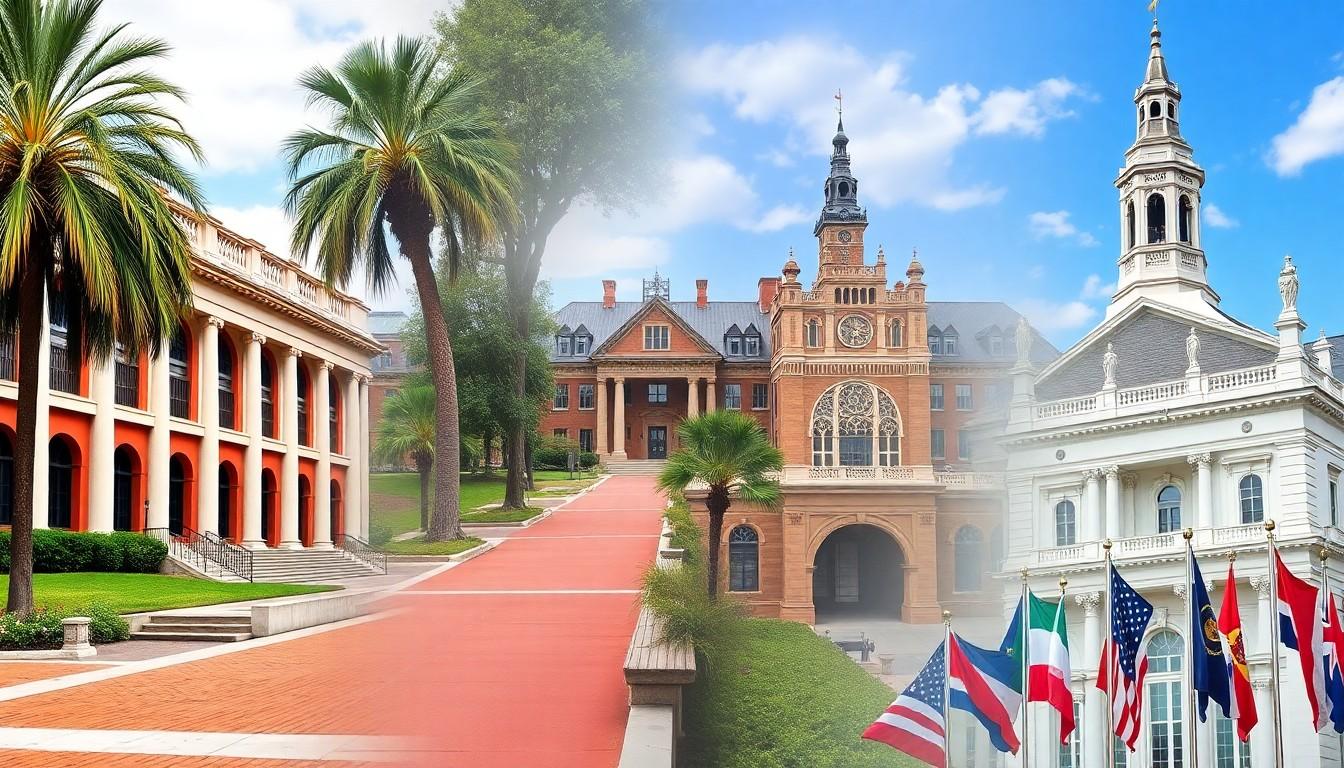Phone:
(701)814-6992
Physical address:
6296 Donnelly Plaza
Ratkeville, Bahamas.

Political science in the U.S. is like a never-ending soap opera—full of drama, plot twists, and the occasional cliffhanger. From election cycles that feel more like reality TV to debates that spark more heat than a summer BBQ, understanding the intricacies of American politics has never been more crucial.
U.S. political science reflects a dynamic landscape. It evolves in response to societal changes and influences public policies.
Ranking in political science plays a crucial role in shaping academic programs and guiding students. It influences the perception of universities and their ability to attract top faculty and researchers. Rankings also affect funding opportunities, as institutions strive to improve their standings to secure grants. Additionally, they help students choose programs that align with their career goals. High rankings signal quality education, research output, and faculty expertise, making them significant in the decision-making process for prospective students.
Several key criteria contribute to the rankings in political science. Faculty publications in reputable journals reflect research output and academic influence. Research funding levels indicate the ability of departments to secure financial support for projects. Graduate employment rates demonstrate program efficacy in preparing students for careers. Institutional reputation relies on feedback from peers in the academic community, impacting overall rankings. Finally, student-to-faculty ratios enhance the learning experience, as smaller classes often lead to more personalized attention.

Several top-tier programs shape the landscape of political science education in the U.S. These institutions excel in research, faculty quality, and student engagement.
Harvard University stands out with its extensive resources and distinguished faculty. Stanford University offers strong interdisciplinary approaches, enhancing political analysis. Yale University produces influential research, impacting both theory and practice in politics. Georgetown University is recognized for its focus on international relations, attracting students interested in global political dynamics. University of Chicago emphasizes empirical research, fostering a robust scholarly environment. Each of these institutions contributes significantly to the field of political science, creating leaders equipped to navigate complex political landscapes.
Northeastern University’s political science program incorporates innovative, experiential learning opportunities. The University of California, Irvine develops a strong focus on technology’s role in politics, preparing students for the digital age. University of Maryland promotes cutting-edge research in public policy analysis. Florida State University emphasizes diversity in political thought, encouraging unique perspectives. These emerging programs aim to address contemporary political challenges, providing fresh insights and preparing students for dynamic political careers.
Political science education evolves rapidly, reflecting broader societal shifts. This section explores emerging trends crucial to understanding the field.
Online learning transforms political science education significantly. Many students now prefer flexible study options, allowing them to balance academic obligations with personal commitments. Courses offered by institutions, such as Harvard and Stanford, have adapted, providing online platforms and resources. These programs enhance accessibility, attracting a diverse student body interested in political studies. Data shows that enrollment in online political science courses has surged, indicating a strong preference for this format. Faculty leverage technology to create interactive and engaging learning experiences, preparing students for modern political environments.
Interdisciplinary approaches enrich political science education. Collaboration with fields such as economics, sociology, and environmental studies fosters a comprehensive understanding of political phenomena. Students benefit from analyzing complex issues through varied lenses, promoting critical thinking. Programs like those at Georgetown encourage collaboration between departments, enhancing research outcomes and educational experiences. This strategy prepares graduates to tackle today’s multifaceted political challenges effectively. Institutions emphasize the importance of diverse educational backgrounds, ensuring students develop a holistic perspective on political issues.
Rankings significantly influence students’ decisions when selecting political science programs. Students often prioritize programs based on their reputations and the quality of education offered.
Choosing the correct program involves examining various factors beyond rankings. Faculty expertise plays a crucial role in shaping the educational experience. Research funding availability can enhance hands-on learning opportunities. Additionally, graduate employment rates provide insight into potential career paths post-graduation. Institutional reputation remains a key determinant, as it often correlates with networking opportunities and alumni success. Students are encouraged to consider personal interests and strengths when evaluating these elements.
Career opportunities in political science are abundant and diverse. Graduates frequently pursue roles in government agencies, think tanks, and non-profit organizations. Many secure positions as policy analysts, public affairs specialists, or political consultants. Additionally, some enter academia, contributing to research and shaping future political discourse. The rise of interdisciplinary approaches opens opportunities in fields like international relations, environmental policy, and public administration. Preparation during academic programs can enhance prospects in competitive job markets.
Understanding U.S. political science is essential for navigating its intricate landscape. With its dramatic developments and evolving trends, the field offers valuable insights into American governance and societal changes. The importance of institutional rankings cannot be overstated as they significantly influence students’ choices and shape the future of political science education.
Emerging programs and innovative learning methods are paving the way for a new generation of political scientists. As graduates enter diverse career paths, the interdisciplinary approach will be crucial in addressing the complexities of contemporary politics. The future of political science is bright, promising to equip students with the skills needed to tackle pressing challenges in a dynamic world.